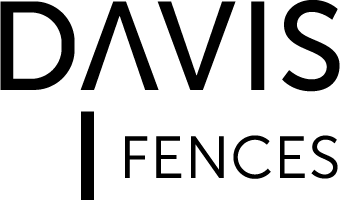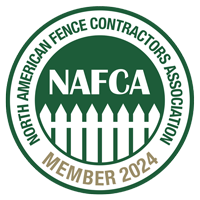FAQs
-
1. What is the benefit of upgrading from a 4x4 post to a 6x6 post?
A 6x6 is much sturdier, there is less warping and splitting with this size of post. It takes longer to rot and almost doubles the life expectancy of the fence. We also offer a two-year workmanship warranty on all of our fences built with 6x6 posts.
-
2. I’m wanting to split the cost of a fence that is shared with my neighbour. How do I go about doing that?
At Davis Fences we believe that “good fences make good neighbours” and we are here to guide you through the process. Being a courteous neighbour by having a discussion with your neighbour ahead of time will ensure that you are on good terms with your neighbour. If you plan on sharing the cost of a fence line here are some things to consider.
Observe Property Lines – go over your property lines with your neighbour so that both of you are aware of the boundaries. If you are unsure of the property line it is recommended that you get a survey.
Respect The Limits – be aware of by-laws. All municipalities have their own rules to the max height of a fence, how close a fence can be to a road, and there are many rules when a pool is involved.
Share Your Plans With Your Neighbour – This is the most important. No one likes unpleasant surprises. It is important to talk to your neighbour about the style of fence you would like and be open to suggestions in order to compromise. Most styles of fence have a Rail Side and a Face side (all except Alternating), it will need to be determined who will get which side. Alternatively, we offer a feature called Sandwich, in which 2x6 frame work is applied, so that the fence is symmetrical on each side. Working out these details with your neighbour beforehand will give everyone involved peace of mind.
-
3. I have a post that needs to be replaced. Do you do that?
Yes, we do! However, we do have a minimum charge of $1,500.00.
-
4. Do you supply a survey?
No, we do not. The property lines are to be established by homeowners. Davis Fences is not responsible for establishing fence lines unless a legal survey is provided on site.
-
5. Do you have a warranty?
We have a two-year workmanship warranty on all iron, vinyl, chain link, and wood fences built with 6x6 posts. We do not warranty wood fences built with 4x4 posts. This warranty excludes warping, splitting, cracks, and shrinking of lumber, as well as vandalism, misuse, or damage caused by a storm.
-
6. Can I stain my wood fence?
It is recommended that you wait at least one season of weathering before staining wood a fence. This gives the pressure treated coating on top of the lumber time to fully penetrate the wood, allowing the lumber to soak up the stain. A good way to tell if your fence is ready to stain is by pouring water on it. If the water soaks up into the wood you are ready for stain. If the water beads on top of the lumber, stain will not be able to penetrate the wood.
-
7. Do I have to apply for utility locates?
Davis Fences will look after public utility locates by applying through Ontario One Call. Davis Fences is not responsible for private locates, ie sprinkler, bbq,and pool lines.
-
8. Do I need a permit for my fence?
A permit is not required to install a fence.
-
9. How deep do you set fence posts?
Typically we set posts 42’’-48’’ deep, making sure we are below frost level to prevent posts from heaving during the winter season.
-
What are the popular fence types for security?
1. Chain-Link Fences
Chain-link fences are widely used for both residential and commercial properties due to their affordability and durability.
Pros:
High visibility through the mesh can discourage intruders, as it leaves no place to hide.
They are often customizable in height, making it harder for intruders to climb over.
Galvanized or coated materials improve resistance to rust, requiring minimal maintenance.
Cons:
While sturdy, chain-link fences lack aesthetic appeal and may not blend well with certain settings, like suburban homes.
Without added features such as barbed wire, they may be easier to breach compared to other options.
2. Wrought Iron Fences
Wrought iron fences are a top choice for those who prioritize both security and style.
Pros:
These fences are strong, durable, and incredibly difficult to cut or break through.
Customizable designs can include sharp finial tops, which act as an additional deterrent for climbing.
They are visually appealing, enhancing the property's overall look while offering security.
Cons:
Wrought iron is more expensive compared to other materials, both in up-front cost and maintenance.
Regular upkeep like repainting is necessary to protect against rust.
3. Wooden Fences
Wooden fences offer a balance of privacy and security, making them a popular choice for many homeowners.
Pros:
Wooden designs such as tall, solid panels prevent visibility into your property, adding privacy alongside security.
The material can be stained or painted to match the property’s aesthetics.
Properly constructed wooden fences can be durable and effective against intrusion.
Cons:
Wood is less durable than metal fences and may weaken over time due to weather conditions.
Without regular maintenance, such as sealing and staining, wood can suffer from rot or insect damage.
-
What are the key considerations for gates?
While fences create the perimeter of your property, gates are a crucial element for effective access control. A poorly chosen or installed gate can undermine even the most secure fence.
Types of Security Gates
Swing Gates: Ideal for residential properties, swing gates offer ease of access and can be automated for added convenience. Make sure to choose a material that complements the fence, such as wrought iron or wood, for a cohesive look.
Sliding Gates: Perfect for commercial properties or areas with limited space, sliding gates glide along a track, making them efficient and secure.
Vertical Lift Gates: Common in industrial or high-security settings, these gates lift vertically and take up minimal horizontal space.
Gate Security Features
Locks and Automation
Consider adding a robust locking system, such as deadbolts or keyless locks, to your gates. Automated gate systems with remote access and keypad controls add an extra layer of convenience and security.
Surveillance
Integrating security cameras near gates ensures you can monitor activity and deter unauthorized access.
Materials and Design
Just like fences, the materials used for gates should be strong and durable. Steel and wrought iron are commonly preferred for their strength and corrosion resistance.
Enhancing Security with Additional Features
To maximize the effectiveness of your fence-and-gate system, consider the following enhancements for both home and commercial properties:
Motion-Activated Lighting: Proper lighting can deter intruders and make your property less inviting for unauthorized entry.
Barbed or Razor Wire: Adding barbed or razor wire atop fences makes it harder to scale. This is a common addition for warehouses and commercial spaces.
Height and Coverage: Taller fences and gates with minimal gaps or footholds are more challenging to climb.
For both residential and commercial properties, a combination of these features can turn your perimeter into an impenetrable barrier.
-
How to Prolong the Life of Your Wooden Fence in Canada's Climate
Regular Cleaning is the Foundation of Maintenance
- Regular Cleaning is the Foundation of Maintenance
- Apply Protective Treatments for Longevity
- Inspect and Repair Damage Annually
- Keep Vegetation in Check
- Work With Professional Services Like Davis Fences
Read more at Protect your Wooden Fence in Canada's climate








